27 Jan2020
By Jane E. West
This blog post is written by AACTE consultant Jane West and is intended to provide updated information. The views expressed in this post do not necessarily reflect the views of AACTE.
As you know, all eyes are focused on the Senate impeachment trial this week. And with the House being in recess, there is no Congressional business underway directly related to education. This may be the case next week as well, since the trial will continue in the Senate. We will keep our eyes peeled. But meanwhile there is a lot going on over at the Department of Education.
Secretary DeVos Announces new Civil Rights Compliance Center
The Department of Education is launching a new unit in the Office for Civil Rights, which is intended to assist schools and universities in “proactively” complying with federal civil rights laws before complaints are filed. Dubbed the Outreach, Prevention, Education and Non-discrimination (OPEN) Center, the initiative will provide targeted support to schools, educators, families, and students in relation to federal non-discrimination laws.
23 Jan2020
By Jerrica Thurman
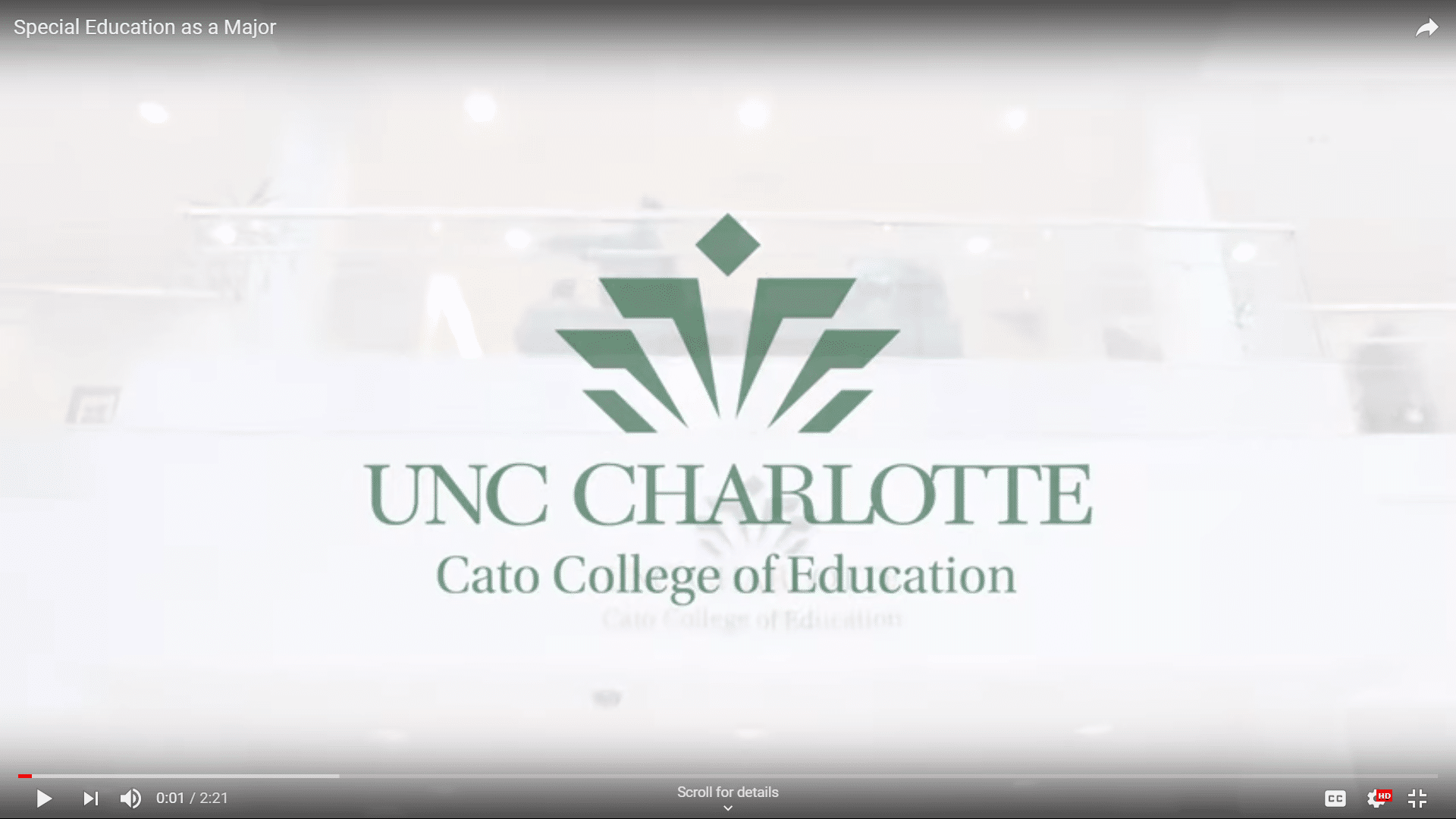 AACTE member institution University of North Carolina at Charlotte (UNC Charlotte) Cato College of Education is working to address the shortage of special education teachers through a new recruitment initiative. Its department of special education and child development received a grant to produce a video to recruit future special educators to the university. Led by Christopher O’Brien, associate professor and special education undergraduate program director, the production features faculty, students, and alumni of the special education teacher preparation program.
AACTE member institution University of North Carolina at Charlotte (UNC Charlotte) Cato College of Education is working to address the shortage of special education teachers through a new recruitment initiative. Its department of special education and child development received a grant to produce a video to recruit future special educators to the university. Led by Christopher O’Brien, associate professor and special education undergraduate program director, the production features faculty, students, and alumni of the special education teacher preparation program.
The special education program at UNC Charlotte’s Cato College of Education prepares teacher candidates to
23 Jan2020
By Aaron Mudd
This article originally appeared in Bowling Green Daily News and is reprinted with permission.
A federal grant award topping $1 million to Western Kentucky University will help address a shortage of special education professionals seen regionally and across Kentucky.
“The shortages are felt nationally, but definitely in an acute manner in our rural communities,” said WKU College of Education and Behavioral Sciences Dean Corinne Murphy, whose college is heading up the effort called Project PREP, or Preparing Rural Educators and Professionals for Students with High-Intensity Needs.
The American Association of Colleges for Teacher Education said there’s a shortage and a lack of diversity of fully prepared and credentialed special education teachers in public schools across the country.
16 Jan2020
By Katrina Norfleet
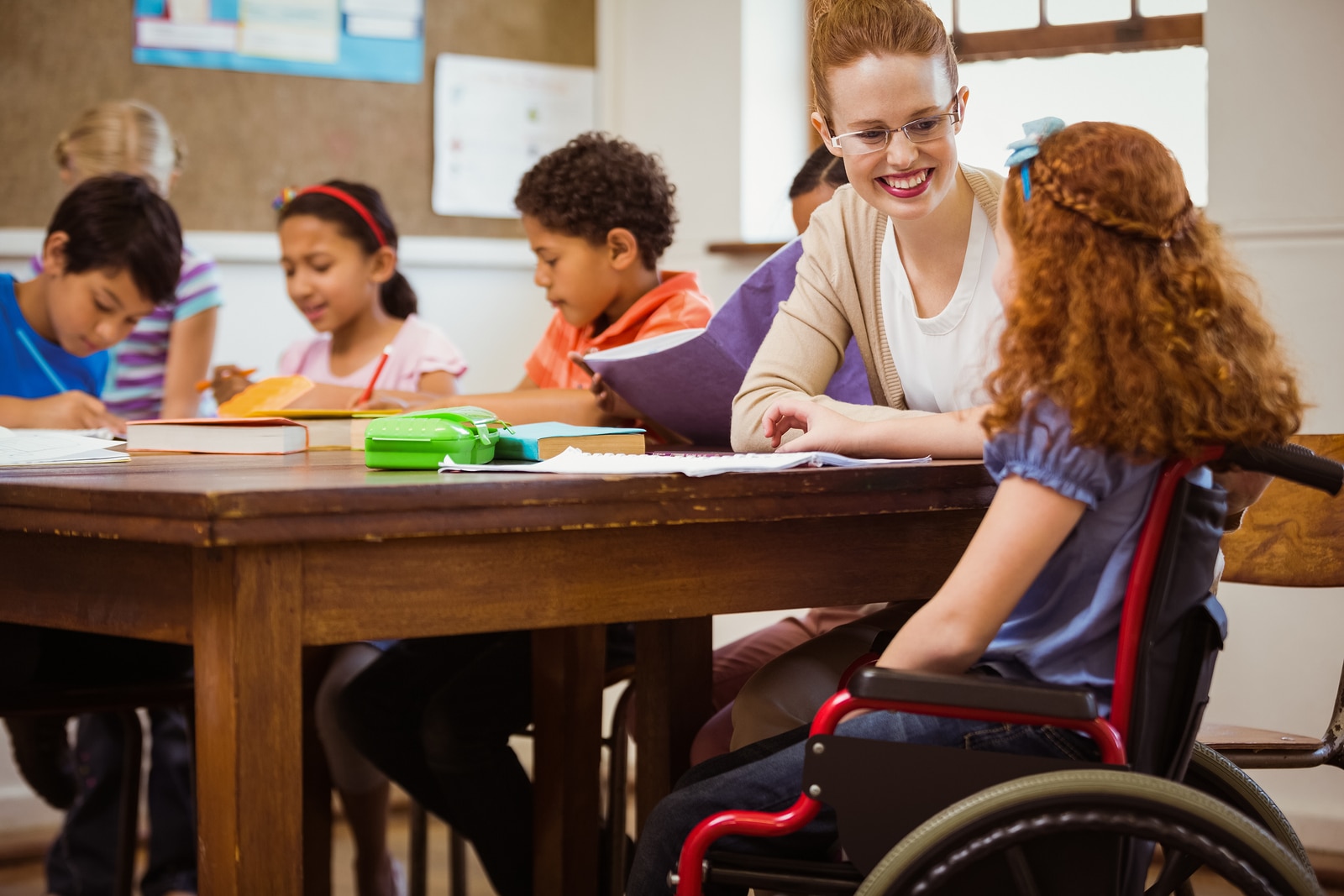 In an article that originally appeared in Special Ed Connection, author Kara Arundel spotlights AACTE’s collaboration with the CEEDAR Center in launching the Reducing the Shortage of Special Education Teachers Networked Improvement Community (NIC). As part of the NIC initiative, 10 preparation programs in higher education have been selected to participate in this NIC and implement a range of strategies that will positively impact the special education teacher shortage by the Fall of 2022.
In an article that originally appeared in Special Ed Connection, author Kara Arundel spotlights AACTE’s collaboration with the CEEDAR Center in launching the Reducing the Shortage of Special Education Teachers Networked Improvement Community (NIC). As part of the NIC initiative, 10 preparation programs in higher education have been selected to participate in this NIC and implement a range of strategies that will positively impact the special education teacher shortage by the Fall of 2022.
Cleveland State University (CSU) is one of the universities featured in the article, along with its Associate Dean for Faculty and External Affairs Tachelle Banks. AACTE’s Caitlin Wilson commented on how CSU and the nine other institutions will help find solutions to the nationwide teacher shortage. “By better understanding what works in particular context and comparing how it is similar or different at another university helps us to learn and share with the filed how that particular strategy or promising practice might be adapted depending on local conditions,” said Wilson, the director of program improvement and practice.
Read the full article, “Network of Universities Collaborate to Solve Special Educator Shortages.“
02 Jan2020
By Carly Leatherwood and Samantha Pelham
This article originally appeared on the Ohio University Ohio News website and is reprinted with permission.
Ohio University received the Teacher Quality Partnership (TQP) grant that will allow OHIO to partner with the Educational Service Center of Central Ohio (ESCCO) to improve the quality of OHIO’s special education teacher preparation program, which will improve the academic achievement of K-12 students.
The grant will span over five years, totaling more than $4.1 million to help accomplish this goal. It also provides opportunities for adult learners, supporting OHIO’s Strategic Framework and the initiative to catalyze strategic enrollment for lifelong learning.
“This partnership with ESCCO allows Ohio University to serve Ohio in preparing the next generation of teachers to work with all learners,” said Renée A. Middleton, dean of the Patton College of Education. “Our vision statement is ‘The Patton College—Where Learning Has No Limits!’ This partnership for teacher quality will allow us to fulfill that vision and commitment.”
06 Dec2019
By Caitlin Wilson

Faculty from 10 of AACTE’s member institutions convened in Washington, DC on November 22-23 for the first in-person meeting of the Networked Improvement Community (NIC) focused on reducing the shortage of the special education teachers. During the 2-day convening, nearly 40 NIC members came together to share and discuss the work happening at their institutions and their goals for recruiting more teacher candidates into their special education programs in the next 6 months.
Following the NIC model of the Carnegie Foundation’s for Foundation for the Advancement of Teaching, the institutions set individual targets connected to the network’s collective aim statement and driver diagram, which serves as the NIC’s working theory of action. Over the summer, faculty from each institution were invited to participate in a book club lead by AACTE staff: Learning to Improve: How America’s Schools Can Get Better at Getting Better. This book serves as a foundational text for the NIC members in understanding improvement science and how to apply it to their work at their institutions.
17 Oct2019
By Robert Whitby
This article originally appeared on the University Of Arkansas website and is reprinted with permission.
Across the country, there’s a critical need for teachers who know how to use evidence-based practices to improve the adult outcomes of students with disabilities.
The University of Arkansas and University of Oklahoma have partnered to help meet that need with a unique program called Razorback-Sooner Scholars: Leaders for Transition.
Leaders for Transition will provide a unique, funded doctoral experience for 10 students at the two universities who want to be special education assistant professors interested in transition services for youth with disabilities and their families.
Recently, the universities were awarded a $2.4 million grant from the U.S. Department of Education, Office of Special Education Programs to fund the program.
23 Sep2019
By Jane E. West
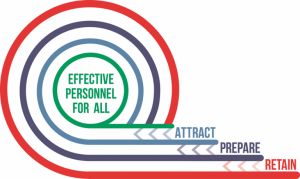 The Office of Special Education Programs of the U.S. Department of Education (DOE) has developed an initiative called “Attract, Prepare and Retain Effective Personnel.” They have requested feedback from the field. Specifically, the invitation states:
The Office of Special Education Programs of the U.S. Department of Education (DOE) has developed an initiative called “Attract, Prepare and Retain Effective Personnel.” They have requested feedback from the field. Specifically, the invitation states:
“We invite you to share your thoughts on how we can best support States in their work to Attract, Prepare, and Retain Effective Personnel. Sharing your challenges and successes can make a difference for others facing similar challenges.”
The deadline for submitting comments is September 30, 2019. Learn more.
13 Sep2019
By Madeline Will and Corey Mitchell
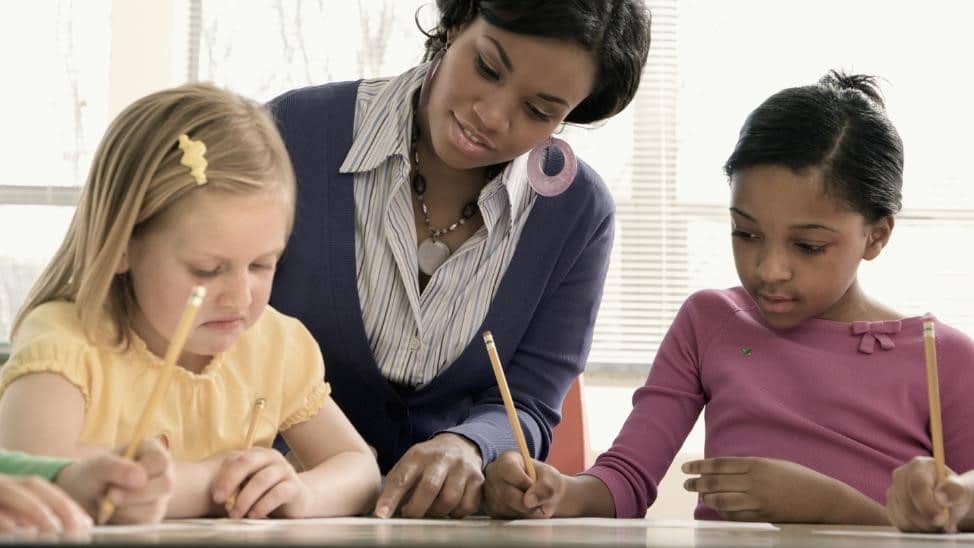
The excerpt below is taken from an article originally published in Ed Week and is reprinted with permission.
It’s a constant struggle for school districts across the country to find qualified special education teachers. An extra challenge: finding special educators of color to help meet the needs of a student population that can be disproportionately nonwhite.
Just over 82 percent of special education teachers in public schools are white, according to 2011-12 federal data, the most recent available. Meanwhile, only about half of students receiving special education services are white, according to 2017-18 data.
Yet teacher diversity matters: Decades of research has shown that students often perform better academically when they are taught by teachers of the same race.
“The special education field is really prime to recruit faculty of color,” said Jacqueline Rodriguez,
09 Sep2019
By Joanne Van Boxtel and Heather Taylor Wizikowski

This article and photo originally were originally published in SmartBrief Education and are reprinted with permission.
We all know the numbers are sobering. A 2018 brief from the Council for Exceptional Children showed critical shortages of special education teachers in 48 states and the District of Columbia. Fifty-one percent of all school districts and 90% of high-poverty school districts report difficulty recruiting highly qualified special education teachers. The exit rate for special education teachers is nearly twice that of general education teachers and enrollment in teacher training programs has declined by 35% over the previous five years.
It seems a dismal picture, but there is light at the end of the tunnel — one that prepares teachers to enter this dynamic field and equips them with tools to help them skillfully and confidently persist in the profession.
14 Aug2019
By Jacqueline Rodriguez
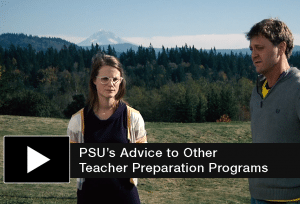 As the student population has diversified so has our understanding of the general education classroom, specifically who we serve in an inclusive setting. Our students with special education services are learning the majority of their grade level curriculum in general education classrooms. This paradigm shift requires effective collaboration between service providers and teachers as well as a deep understanding and application of differentiation to meet the needs of all students.
As the student population has diversified so has our understanding of the general education classroom, specifically who we serve in an inclusive setting. Our students with special education services are learning the majority of their grade level curriculum in general education classrooms. This paradigm shift requires effective collaboration between service providers and teachers as well as a deep understanding and application of differentiation to meet the needs of all students.
For years, the two fields of general education and special education have been siloed. Persistence and partnership is how
09 Aug2019
By Jacqueline Rodriguez
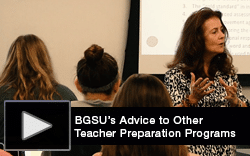 The key to developing the Bowling Green State University (BGSU) dual licensure program is reaching out to the local area to ensure the program is built with the local needs at the forefront. “The local data is how the university can drive change,” recalls a district leader. Faculty also believe collaboration with the district is central to their mission and their success with candidates. Making connections with the field office and the supervising teachers ensured faculty could relate what candidates were seeing in the field to what they were learning in their coursework.
The key to developing the Bowling Green State University (BGSU) dual licensure program is reaching out to the local area to ensure the program is built with the local needs at the forefront. “The local data is how the university can drive change,” recalls a district leader. Faculty also believe collaboration with the district is central to their mission and their success with candidates. Making connections with the field office and the supervising teachers ensured faculty could relate what candidates were seeing in the field to what they were learning in their coursework.
University systems must also be taken into consideration, especially when working across colleges and across departments. Two questions drove the BGSU program leadership as they developed their dual licensure program: What is best for our students in this program? An what is best for this program? One significant concern was finding strong clinical placements for each teacher candidate. The success of a program with hundreds of teacher candidates rested with strong clinical partnerships.
Finally, serving all students that walk into the classroom was the priority when developing the dual licensure program at BGSU. “This wasn’t an experiment, this is the way BGSU does business,” reflected a faculty member. It was a choice to move away from single licensure that, over time, changes the makeup of the district teaching population, which is why district leaders were involved at every step in the program development.
To learn more, watch the Advice to Others video highlighting BGSU’s Models of Inclusive Clinical Teacher Preparation, part of AACTE’s Research-to-Practice Spotlight Series.
01 Aug2019
By Jacqueline Rodriguez
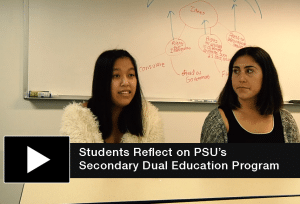 A number of students in Portland State University’s (PSU) Secondary Dual Education Program (SPED) recently reflected on advice they were given before entering the graduate program. “I always want more education than less,” one teacher candidate was advised by a mentor in the field of medicine. The candidate now looks back on her experience in the program with appreciation. “I was ready. I had the resources. I had been in the classroom for two years; it felt natural. I didn’t have the same level of trepidation as some of my first year friends.”
A number of students in Portland State University’s (PSU) Secondary Dual Education Program (SPED) recently reflected on advice they were given before entering the graduate program. “I always want more education than less,” one teacher candidate was advised by a mentor in the field of medicine. The candidate now looks back on her experience in the program with appreciation. “I was ready. I had the resources. I had been in the classroom for two years; it felt natural. I didn’t have the same level of trepidation as some of my first year friends.”
The students who complete the PSU program graduate with a dual endorsement in a secondary education content area and special education. Another candidate reflected on the importance of serving every student in the classroom. His decision to pursue a two-year graduate program in secondary English and special education was an obvious one; it ensured he would be prepared to meet the needs of all students with a range of abilities.
The benefit of being profession-ready is not only valued by the teacher candidates. High school students also note the tremendous advantage they have when a teacher who understands the unique needs of students with IEPs is leading the classroom. In particular, college access traditionally has been stymied for students with significant disabilities. However, one high school student reflected that she has a mentor in her teacher, someone who has guided her toward college-ready curriculum. Learning from their students is another area of mutual benefit expressed by the candidates. The necessity to meet the needs of each student in the classroom is universally acknowledged by candidates, students, and administrators.
To learn more, view the What’s in it for me? video highlighting PSU’s Secondary Dual Education program, part of AACTE’s Research-to-Practice Spotlight Series.
29 Jul2019
By Jerrica Thurman
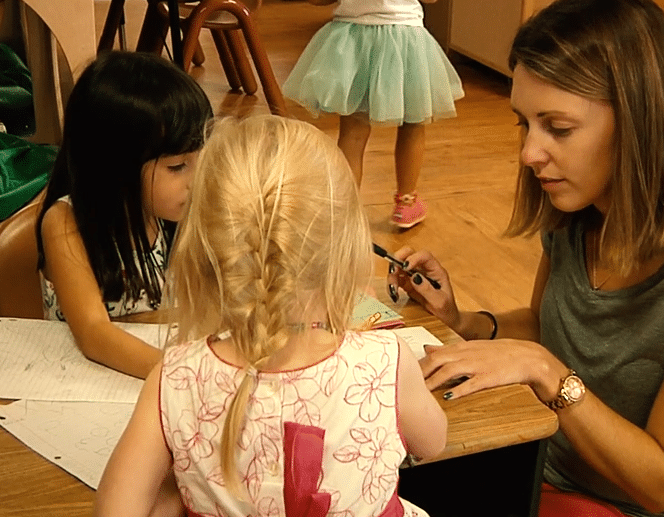 Developing and sustaining partnerships with local school districts are critical to the success of the Bowling Green State University (BGSU) Inclusive Early Childhood (IEC) program. Superintendents who work with BGSU assert that all parties need to understand the challenges each school district and university face and must be willing to bridge the gap between research and clinical practice together. BGSU’s teacher candidates are deployed for clinical practice in special education at local schools including in rural areas.
Developing and sustaining partnerships with local school districts are critical to the success of the Bowling Green State University (BGSU) Inclusive Early Childhood (IEC) program. Superintendents who work with BGSU assert that all parties need to understand the challenges each school district and university face and must be willing to bridge the gap between research and clinical practice together. BGSU’s teacher candidates are deployed for clinical practice in special education at local schools including in rural areas.
“One of the pieces that works really well for us is that all of the people working in the education department at the university are parents themselves of students in our district so there’s a vested interest,” said Francis Scruci, superintendent of Bowling Green City Schools. “I think there’s a mutual respect. We certainly respect what the university does and I think they respect what we’re trying to do at the K-12 level and we understand the challenges that both of us face. We are willing to bridge that gap and try to help each other become successful.”
BGSU’s overall objective is to prepare graduates of the IEC program to teach young children with and without disabilities in inclusive settings. The IEC program blends the best practices from early childhood education with early childhood special education. It addresses the knowledge, skills, and values necessary to meet the needs of each child. Graduates of the program are prepared to provide differentiated, evidence-based instruction to young children from birth through grade 3.
To learn more, watch the Developing and Sustaining Partnerships video highlighting BGSU’s Models of Inclusive Clinical Teacher Preparation, part of AACTE’s Research-to-Practice Spotlight Series.
19 Jul2019
By Katrina Norfleet
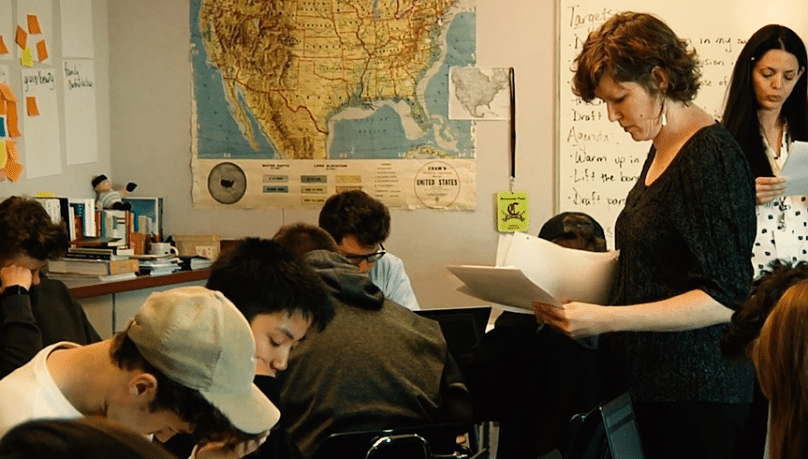
One of the key components of Portland State University’s (PSU) Secondary Dual Education Program is its success in developing and sustaining partnerships with local school districts.
Marvin Lynn, dean of the Graduate School of Education at PSU, shares how the program prepares secondary education teacher candidates to bring content knowledge and “the knowledge that special education teachers have to bare about the learning process and about how to work with these unique populations” to local schools.
Educators like Ana Capac, a special education teacher at Evergreen High School, specifically ask for student teachers from the PSU program because of the mindsets and approaches they bring to the classroom and community. “It is really important that I’m supporting both the student teachers I’m working with on how they are developing this mindset of inclusion, supporting all students, and working within the school to support their colleagues as well,” says Capac.
Andrew Gilford, assistant principal at Clackamas High School, emphasizes this culture shift to more collegial relationships where the PSU teacher candidates and the classroom teachers “speak the same language” and can work together to serve students with disabilities and improve learning outcomes. “Coming from this kind of program and this kind of background, you are immediately an advocate,” adds Rob Parness, special education teacher and former academic coach at Tigard High School.
In discussing the culture shift, Will Parnell, curriculum and instruction department chair at PSU, emphasizes that the program was built based on relationships with the community. “There were local districts that were saying ‘we want special ed teachers that can support students in general ed classrooms’ but they found out that teacher prep programs were not focused on that,” says Susan Bert, assistant professor of practice, special education at PSU. “So there was a need.”
To learn more, view the Developing and Sustaining Partnerships video featuring PSU’s Secondary Dual Education program.







 AACTE member institution University of North Carolina at Charlotte (UNC Charlotte) Cato College of Education is working to address the shortage of special education teachers through a new recruitment initiative. Its department of special education and child development received a grant to produce a video to recruit future special educators to the university. Led by Christopher O’Brien, associate professor and special education undergraduate program director, the production features faculty, students, and alumni of the special education teacher preparation program.
AACTE member institution University of North Carolina at Charlotte (UNC Charlotte) Cato College of Education is working to address the shortage of special education teachers through a new recruitment initiative. Its department of special education and child development received a grant to produce a video to recruit future special educators to the university. Led by Christopher O’Brien, associate professor and special education undergraduate program director, the production features faculty, students, and alumni of the special education teacher preparation program. In an article that originally appeared in Special Ed Connection, author Kara Arundel spotlights AACTE’s collaboration with the CEEDAR Center in launching the Reducing the Shortage of Special Education Teachers Networked Improvement Community (NIC). As part of the NIC initiative, 10 preparation programs in higher education have been selected to participate in this NIC and implement a range of strategies that will positively impact the special education teacher shortage by the Fall of 2022.
In an article that originally appeared in Special Ed Connection, author Kara Arundel spotlights AACTE’s collaboration with the CEEDAR Center in launching the Reducing the Shortage of Special Education Teachers Networked Improvement Community (NIC). As part of the NIC initiative, 10 preparation programs in higher education have been selected to participate in this NIC and implement a range of strategies that will positively impact the special education teacher shortage by the Fall of 2022.
 The Office of Special Education Programs of the U.S. Department of Education (DOE) has developed an initiative called “Attract, Prepare and Retain Effective Personnel.” They have requested feedback from the field. Specifically, the invitation states:
The Office of Special Education Programs of the U.S. Department of Education (DOE) has developed an initiative called “Attract, Prepare and Retain Effective Personnel.” They have requested feedback from the field. Specifically, the invitation states:

 As the student population has diversified so has our understanding of the general education classroom, specifically who we serve in an inclusive setting. Our students with special education services are learning the majority of their grade level curriculum in general education classrooms. This paradigm shift requires effective collaboration between service providers and teachers as well as a deep understanding and application of differentiation to meet the needs of all students.
As the student population has diversified so has our understanding of the general education classroom, specifically who we serve in an inclusive setting. Our students with special education services are learning the majority of their grade level curriculum in general education classrooms. This paradigm shift requires effective collaboration between service providers and teachers as well as a deep understanding and application of differentiation to meet the needs of all students. The key to developing the Bowling Green State University (BGSU) dual licensure program is reaching out to the local area to ensure the program is built with the local needs at the forefront. “The local data is how the university can drive change,” recalls a district leader. Faculty also believe collaboration with the district is central to their mission and their success with candidates. Making connections with the field office and the supervising teachers ensured faculty could relate what candidates were seeing in the field to what they were learning in their coursework.
The key to developing the Bowling Green State University (BGSU) dual licensure program is reaching out to the local area to ensure the program is built with the local needs at the forefront. “The local data is how the university can drive change,” recalls a district leader. Faculty also believe collaboration with the district is central to their mission and their success with candidates. Making connections with the field office and the supervising teachers ensured faculty could relate what candidates were seeing in the field to what they were learning in their coursework.

